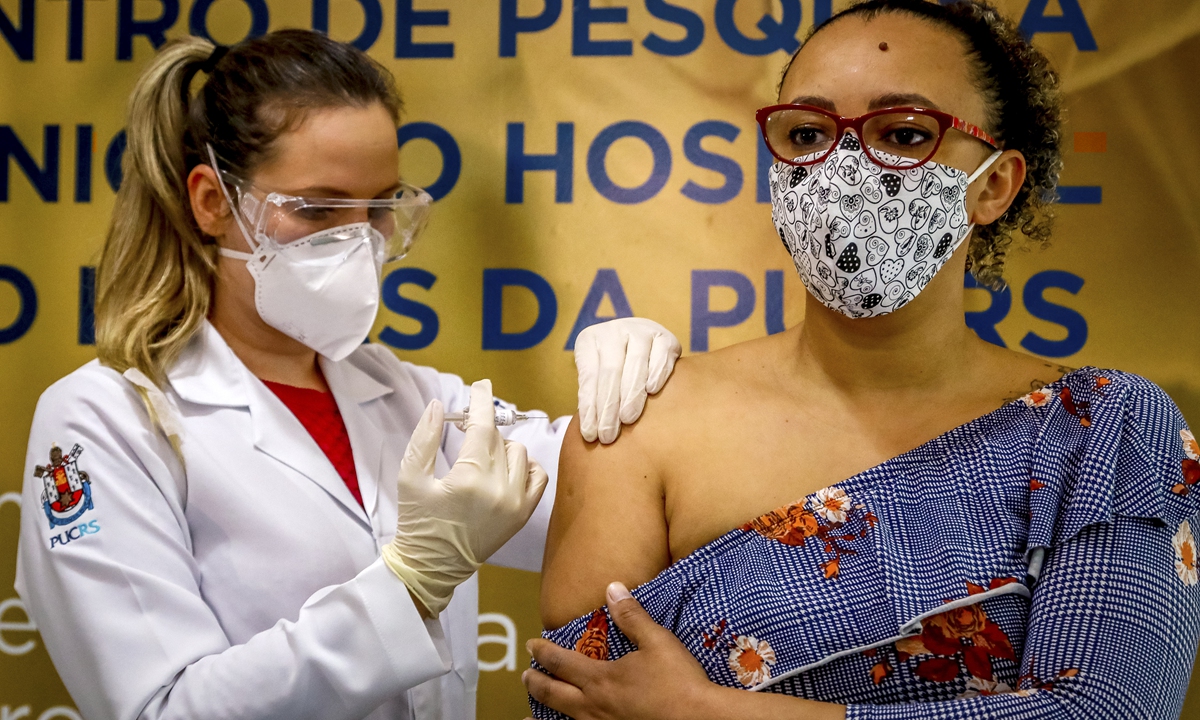46 million doses of China's Sinovac COVID-19 vaccines to be included in Brazil immunization plan: media reports

Health worker and volunteer Fabiana Souza receives a COVID-19 vaccine produced by Chinese company SinoVac Biotech at the Sao Lucas Hospital, in Porto Alegre, southern Brazil on August 8. Photo: AFP
The COVID-19 vaccines made by China's Sinovac Biotech have been included in the immunization plan of Brazil, a country that has seen over 7 million confirmed COVID-19 infections, Brazilian media reported.
The federal government is expected to purchase 46 million doses of Chinese vaccines, Reuters reported citing a state governor on Wednesday. The first 9 million doses are to be delivered on January 25, Wellington Dias, governor of the northeast state of Piaui, told Reuters.
The country's immunization plan is likely to start in the middle of February and cover about 49.6 million people within 16 months, according to the G1.
The Chinese vaccines are co-developed by Beijing-based Sinovac Biotech and Instituto Butantan, a leading Brazilian producer of immunobiologic products.
The confirmation that Chinese vaccines would be used came as the epidemic continues to run rampant in Brazil, which saw over 70,000 new confirmed cases and 936 deaths on Wednesday. More potential cases and deaths might be unaccounted for, as Sao Paulo did not record epidemic statistics on Wednesday due to a technical breakdown, media reports said.
According to the G1, the epidemic situation in 17 states and the capital has severely deteriorated, with one reinfection case reported in Sao Paulo. A 41-year-old patient infected with the virus in June was infected again 145 days later.
The viral gene sequencing collected from the person belong to two different virus strains, one of which is prevalent in Brazil, the US, the UK, Australia and Chile while the other is widespread in Brazil. Previously, Brazil reported that a doctor had been re-infected. The patient contracted two different virus strains in June and October.
Global Times
